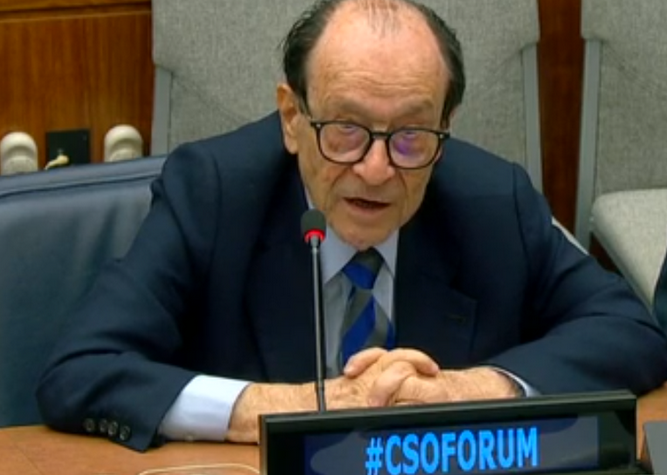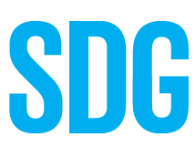
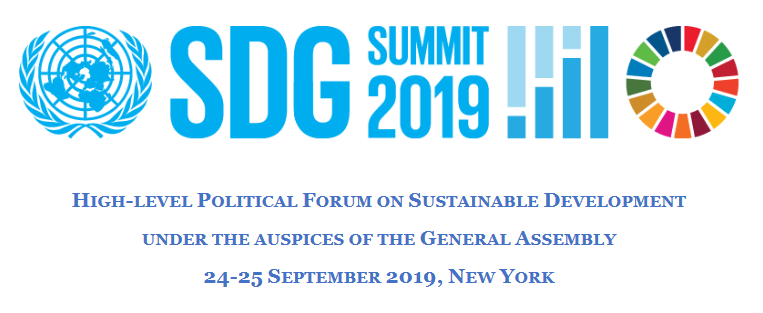
The Civil Society Organization Forum (CSO) Forum took place on 24 September 2019 in Conference Room 4 at UN Headquarters in New York.
The Civil Society SDG Forum aims to create a space for constructive and propositional dialogue between civil society and UN Member States, international organizations and other related constituencies on the possible responses to the challenges exposed by the first four years of implementation of the 2030 Agenda for Sustainable Development.
The Forum was facilitated by the civil society constituencies of the HLPF Major Group and other Stakeholders Coordination Mechanism (MGoS), under the overall coordination of the HLPF MGoS Steering Group (SG).
The UN Scientific and Technological Community (STC) Major Group, which played an active role in the meetings, was represented by the three following delegates:
- Joseph Alcamo, Director of the Sussex Sustainability Research Programme (SSRP) from the International Science Council (ISC)
- Jorge Spitalnik, Former President WFEO and Member of WFEO UN Relations Committee
- William Kelly, Member of WFEO UN Relations Committee
Introduction
Because the Summit was held in conjunction with the opening of the General Assembly and the Climate Summit, access to the UN was very restricted. Attendees were required to have printed tickets with their name and pass through multiple security stations and were only allowed to attend the ticketed event.
All regular passes for NGOs were suspended until October 1. Security around the UN extended from 42nd to 49th street and over to 2nd Avenue. Tickets and identification were checked at a special UN gate at 46th and 2nd avenue. The STC Major Group (WFEO and ISC) was only allocated 4 tickets.
WFEO as part of the STC major group worked closely with the Major Groups and other Stakeholders Coordinating Mechanism Steering Group during August and September organizing NGO participation at the Summit and the format and content of the Civil Society Organization Forum (CSO).
Lucilla Spini, Senior Science and Policy Officer at ISC and Reginald Vachon (WFEO) led this effort. Lucilla Spini worked tirelessly from Paris keeping everyone up to date on changes to the program, venues, and access at the UN.
The purpose of the SDG Summit was to review progress on the UN SDGs since 2015 and set the direction for the next ten years. This meeting was held under the auspices of the UN General Assembly and coincided with the opening of the General Assembly, The current plan is to have another summit in 2020 coinciding with the celebration of the 75th anniversary of the founding of the UN.
The program for the Summit is available here.
The program includes the list of inscribed speakers for each session.
The Political Declaration was adopted on the first day of the Summit. The Declaration specifically refers to the Global Sustainable Development Report (GSDR) in paragraph 19. The Political Declaration can be downloaded here.
You can watch the entire Summit on UN WebTV.
All of the statements that were submitted in written form can be accessed on Paper Smart.
Tuesday Afternoon, September 24, 2019
António Guterres (Secretary-General) at the opening of the SDG Summit.
(Part 1) SDG Summit (Opening, Plenary, Leaders Dialogue 1) – General Assembly, 74th session
Session 1 video – Joseph Alcamo, ISC, attended this session.
Fireside Chat on the Global Sustainable Development Report (GSDR) –“The Future is Now” is in this video starting at about 24′:05″. The GSDR can be viewed here.
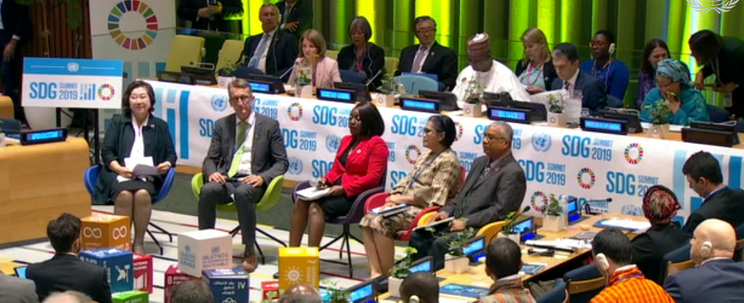
Tuesday Evening, September 24, 2019
Concept Note for the Forum.
Civil Society Organization Forum video
Attendees: Joseph Alcamo ISC, Jorge Spitalnik, Former President WFEO, William Kelly Member of WURC
The intervention by Jorge Spitalnik is at approximately at 2:29:35.
Other than the intervention by Jorge Spitalnik, there was little or no discussion of the role of science and technology in achieving the SDGs despite the attention given to the GSDR in the opening session. There was general consensus at the forum that there needs to be a more integrated and systematic approach to achieving the SDGs; this is called for in the GSDR.
Sessions 2, 3 & 4 video – No attendees for ISC or WFEO.
Session 5 & 6 and closing video – William Kelly WFEO attended.
The dialog leaders in sessions 5 & 6 were asked to address three guiding questions but few did. Most chose to talk about their own country’s progress in achieving the SDGs. Several of the leaders noted the importance of governance (SDG 16) that is also one of the levers recommended in the GSDR.
Session 5 leaders were to address the “decade of deliverance” and meeting 2020 targets.
The President of Latvia mentioned they were moving toward a circular economy. The Prime Minister of Malaysia called for rich countries to stop sending waste to Malaysia. The President of Hungary focused only on the country’s water issues. In closing, the co moderator from Malta reiterated the various guidance that are available including the GSDR.
Session 6 was about renewing multi stakeholder partnerships (SDG 17).
A number of the leaders noted they had long-term development plans and Agenda 2030 and the SDGs were useful in their planning processes; see for example the presentation by the President of Moldova. The prime minister of the Czech Republic mentioned they have on online process for gathering voluntary commitments. The prime minister of Sweden announced a new global leadership group with India.
My big takeaway is that there is great value in having national leaders talk about how their countries are approaching the SDGs and their top down commitment. Clearly Agenda 2030 and the SDGs have been helpful to many countries in systematizing their national approaches to development.
A number of other videos are available many from the SDG Media Zone. See e.g.
Science for Achieving Sustainable Development: Findings from a Global Report on SDGs – SDG Media Zone, High-Level Week, 74th session of the UN General Assembly 24 September 2019
For more information
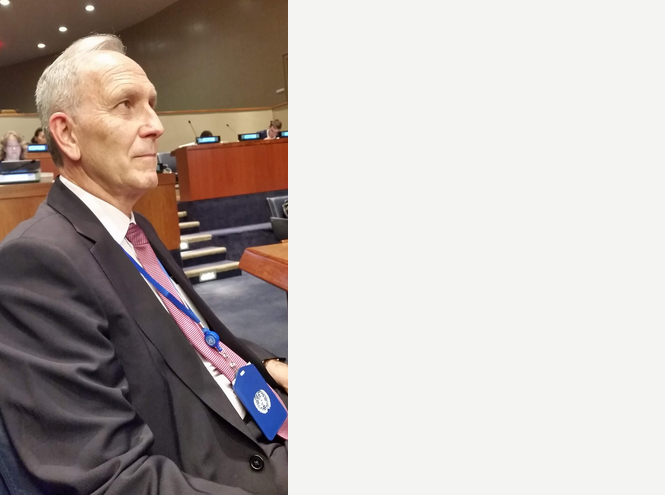
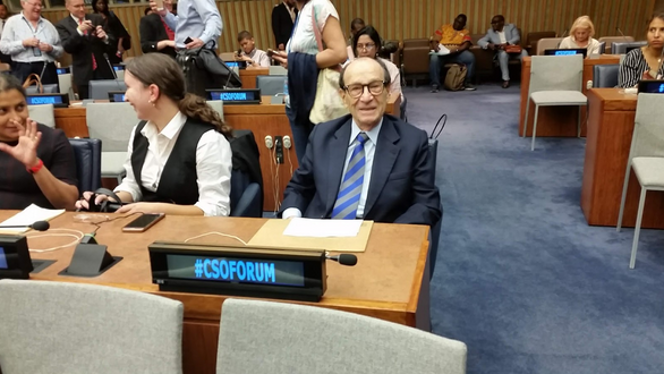
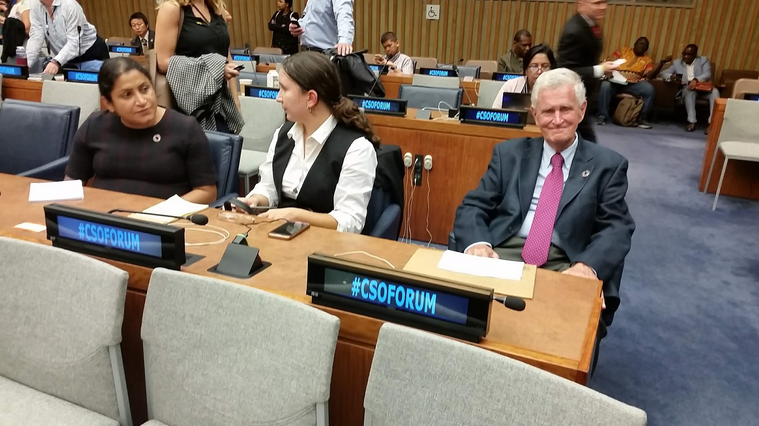
OCT
2019

